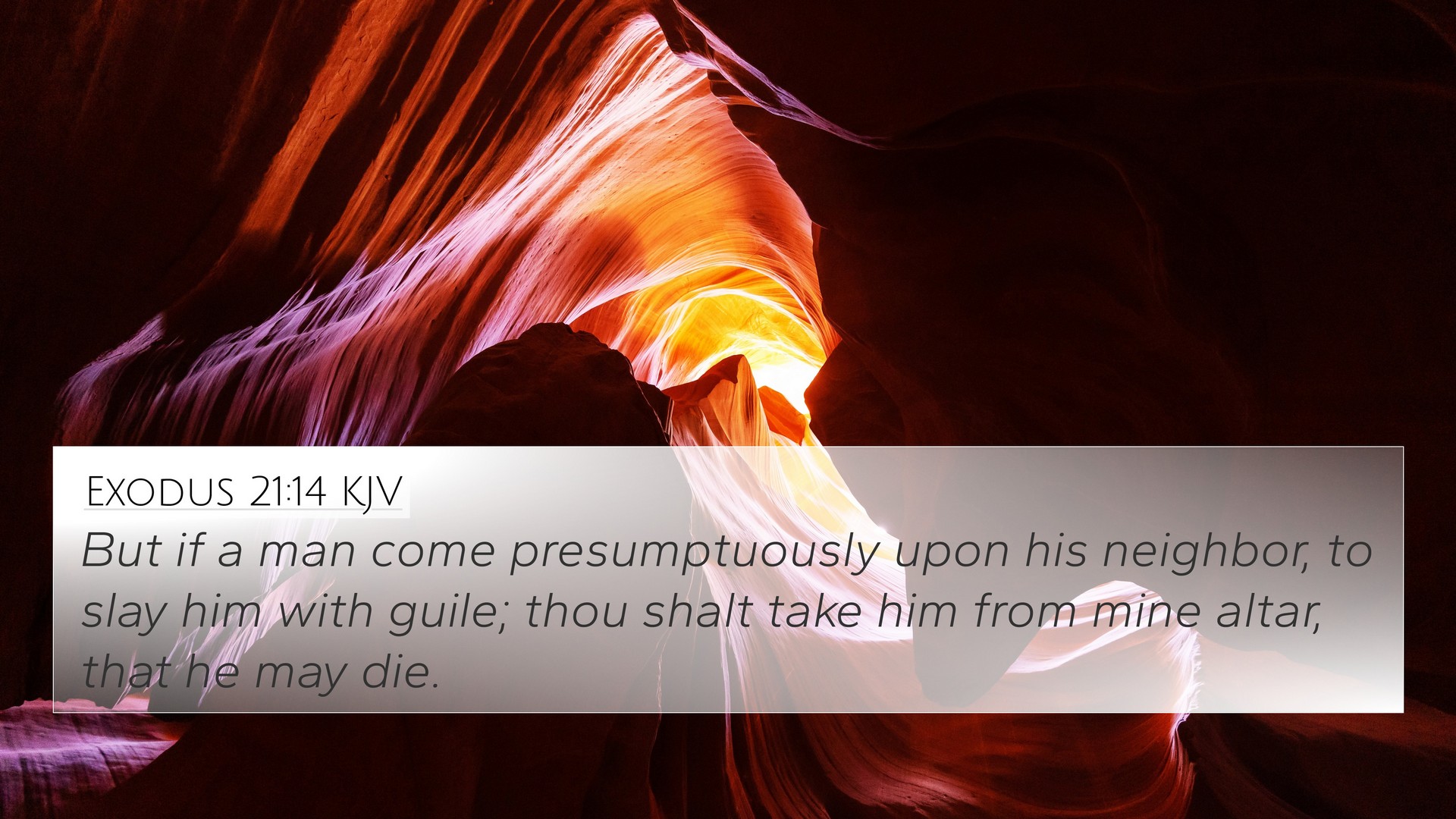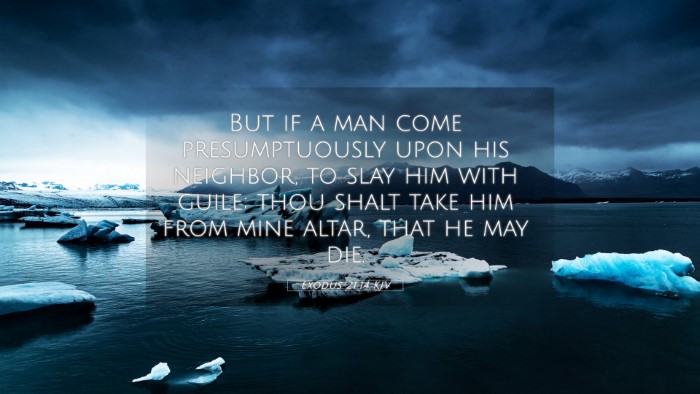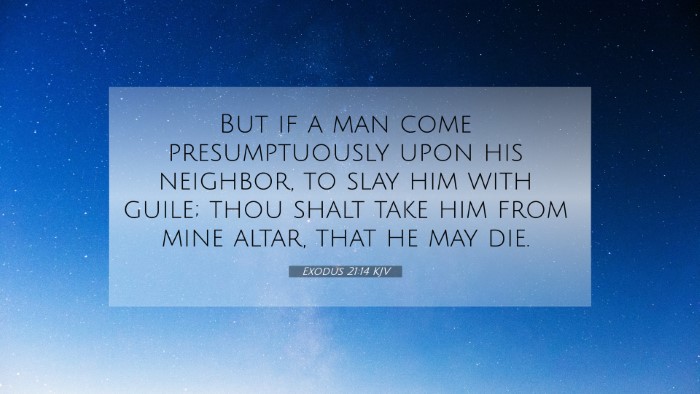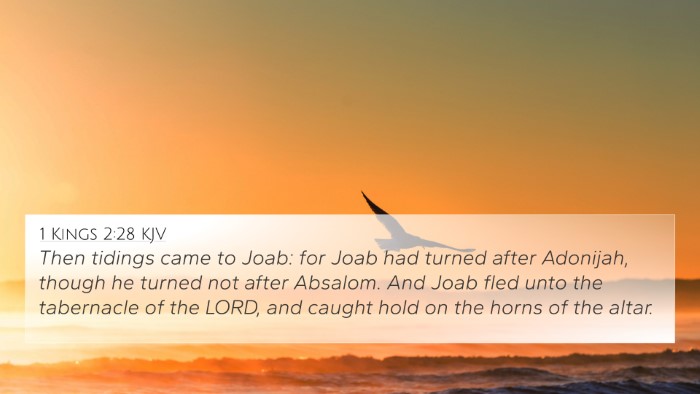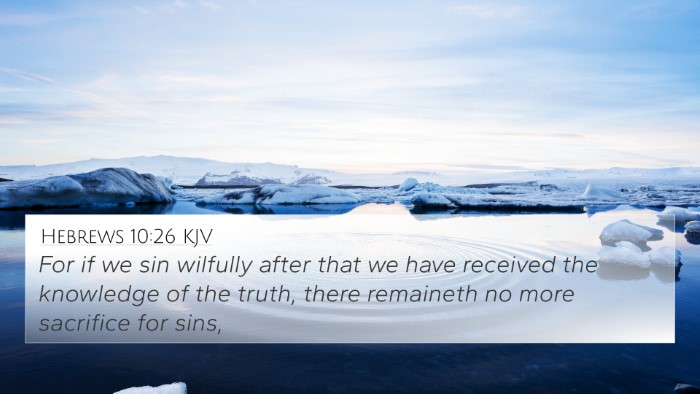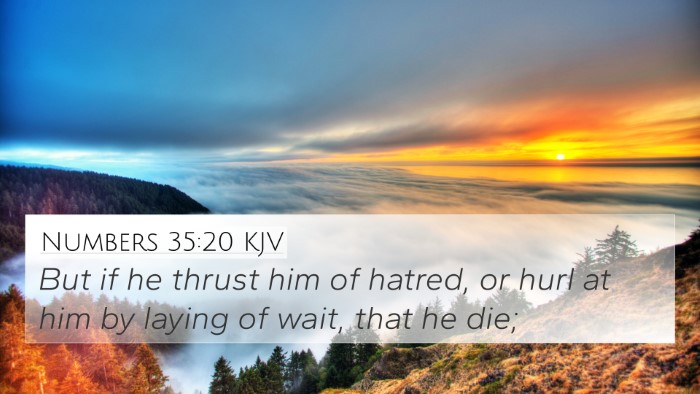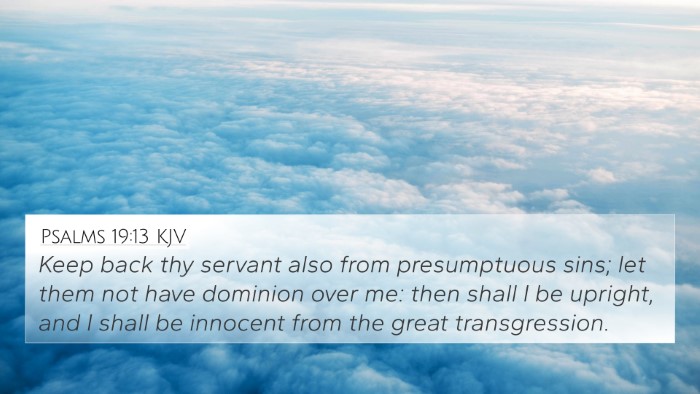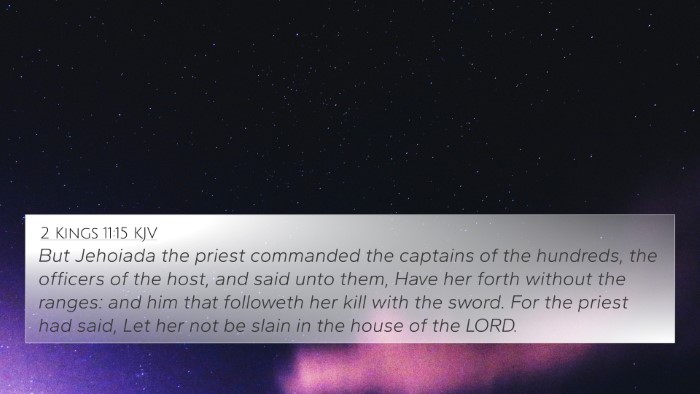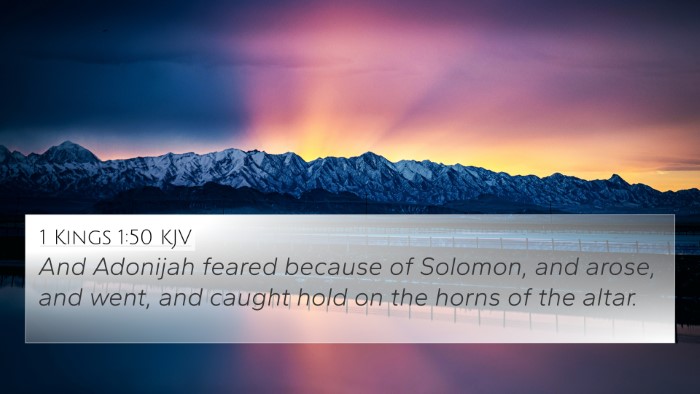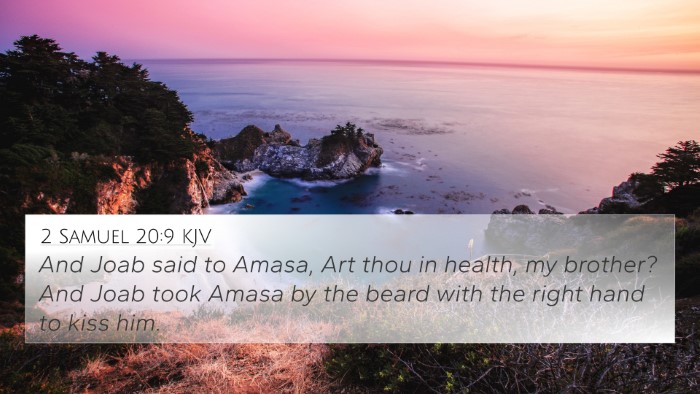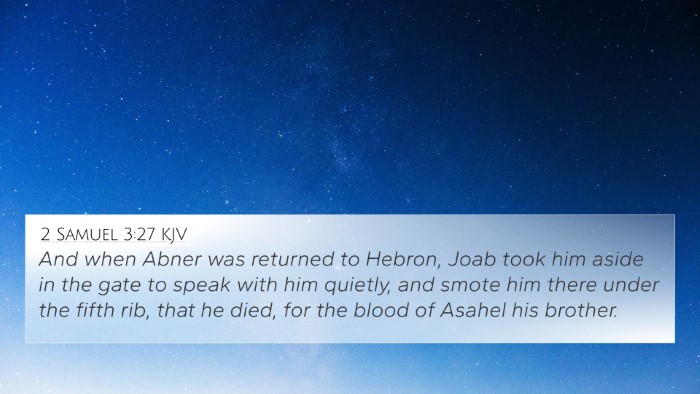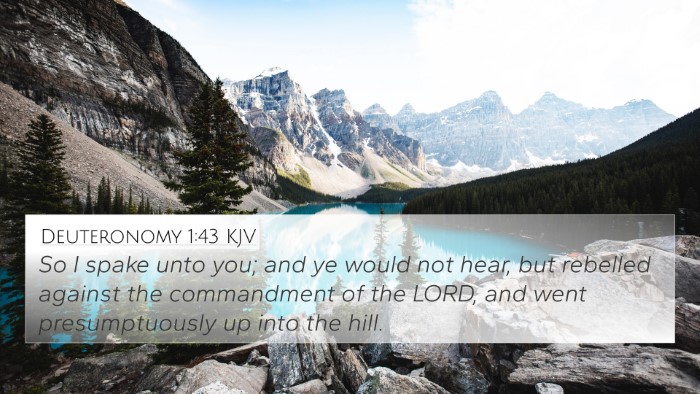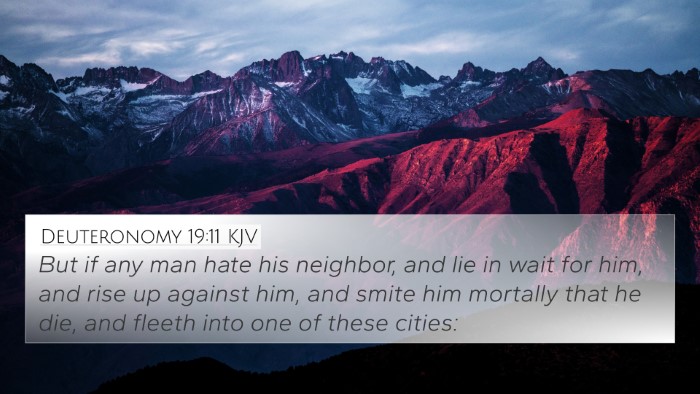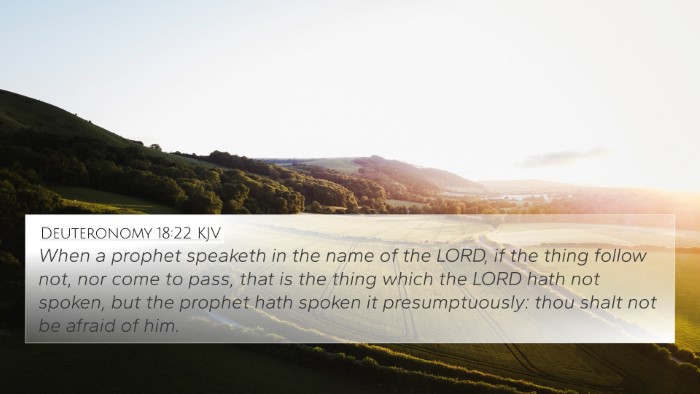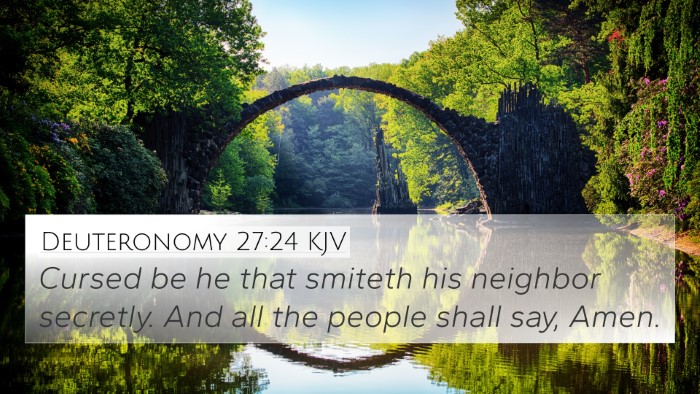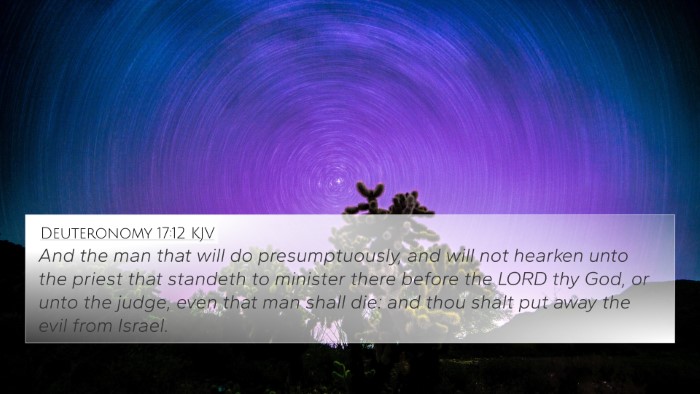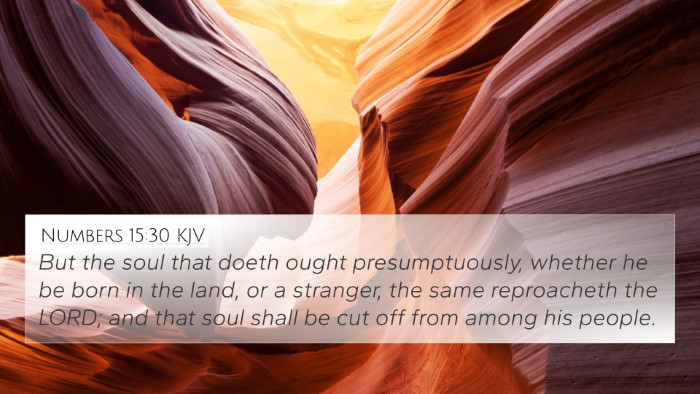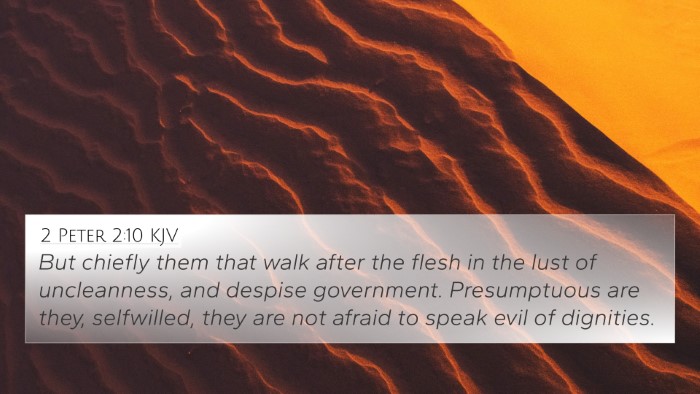Understanding Exodus 21:14
Exodus 21:14 states, "But if someone schemes and kills another person deliberately, take them away from my altar and put them to death." This verse falls within a section of scripture that outlines laws regarding personal injury and protection of life.
Summary of the Verse Meaning
This verse conveys a profound message about justice and accountability. It describes the gravity of intentional murder and the severe consequences that follow such actions, emphasizing God's demand for justice. Let's explore insights based on public domain commentaries.
Insights from Commentaries
- Matthew Henry: Henry highlights that this verse illustrates the difference between accidental and premeditated murder. He underlines that seeking refuge at the altar does not exempt one from facing justice. This reinforces the principle that God's laws demand integrity and righteousness in society.
- Albert Barnes: Barnes emphasizes the seriousness of planned murder and notes the necessity of public justice. He remarks that even revered places of worship do not serve as a shelter for those guilty of severe transgressions, further stressing the sanctity of life.
- Adam Clarke: Clarke reflects on the idea that such penalties indicate the overwhelming importance of life and the moral order. He interprets this command within the broader context of societal responsibility and the need to uphold justice, reflecting God's character as just and righteous.
Connections with Other Bible Verses
Thematic links between Exodus 21:14 and other scripture reveal a comprehensive view of justice, mercy, and the consequences of sin. Below are significant Bible cross-references that relate closely to this verse:
- Genesis 9:6 - "Whoever sheds the blood of man, by man shall his blood be shed..." This establishes the principle of capital punishment for murder, highlighting a divine order regarding life and death.
- Leviticus 24:17 - "Anyone who takes the life of a human being is to be put to death." Reinforces the boundaries set by the law concerning the sanctity of human life.
- Numbers 35:16-21 - Details different circumstances surrounding intentional and unintentional killing, illustrating God’s judicial systems.
- Deuteronomy 19:11-13 - Discusses the requirement of justice through specific judgments and the avenger of blood, showing the parameters of punishment.
- Matthew 5:21-22 - "You have heard that it was said to the people long ago, 'You shall not murder...'" Jesus expands on this concept, emphasizing anger and contempt as attitudes that lead to similar consequences.
- Romans 13:4 - "For the one in authority is God's servant for your good. But if you do wrong, be afraid, for rulers do not bear the sword for no reason..." Discusses the God-ordained role of government in administering justice.
- 1 John 3:15 - "Anyone who hates a brother or sister is a murderer..." This verse connects the heart’s intent with the act of murder, emphasizing the moral implications.
- Galatians 5:21 - ."...and envy; drunkenness, orgies, and the like. I warn you, as I did before, that those who live like this will not inherit the kingdom of God." This verse broadens the discussion on sin and the consequences of unrestrained wrongdoing.
- Hebrews 10:28 - "Anyone who rejected the law of Moses died without mercy on the testimony of two or three witnesses." It highlights both the seriousness of the law and the implications of disobedience.
Importance of Cross-Referencing
Understanding the context of Exodus 21:14 through Bible verse cross-references enhances comprehension of divine justice and the moral structure established in the scriptures. These connections between Bible verses reveal thematic continuity regarding the sanctity of life, the seriousness of sin, and the necessity of justice. This cross-referencing provides a way to explore inter-Biblical dialogue and understand God's overarching plan for humanity.
Tools and Methods for Bible Cross-Referencing
- Bible Concordance: A resource that helps locate verses related to a specific term, enriching the understanding of various themes.
- Bible Cross-Reference Guide: Guides that provide insights into how different verses relate to each other.
- Cross-reference Bible study: Methods that encourage a deeper exploration of scriptures by comparing and contrasting verses.
- Using Bible cross-references: Learning how to effectively find and utilize references that illuminate the meaning of a specific passage.
- Bible chain references: Exploring passages that build on each other to form a comprehensive view.
Conclusion
Exodus 21:14 serves not only as a legal statement but also as a theological reflection on justice and morality. By examining this verse alongside relevant cross-references, believers can deepen their understanding of God’s justice and the implications of human actions. Such approaches reveal the intricate Bible verse parallels that exist throughout the scriptures, assisting in effective Bible study and interpretation.
